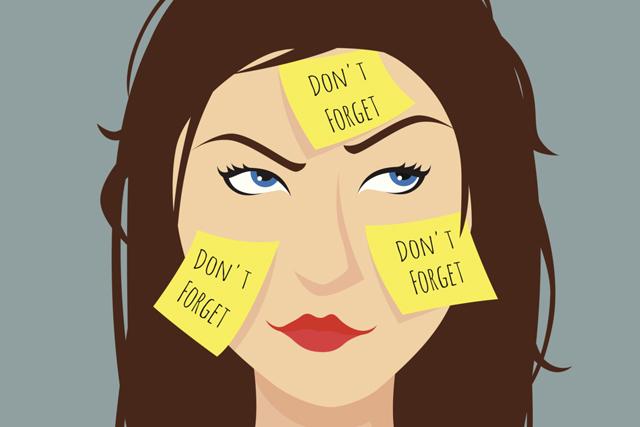It’s slightly ironic that I have just sat down to write this piece having been prompted to do so by my mobile phone. But the truth is that if I hadn’t set myself a reminder in my phone diary I would have forgotten.
This problem goes far beyond my to-do list. My contacts, my diary, how to get from A to B, how to cook spaghetti bolognese; all things I used to be able to remember, but now things I can’t recall without deferring to my phone.
Getting older might have something to do with it, but at 32 years of age I am certain that is not the real reason. And I am not alone. Research we’ve recently conducted on behalf of several different clients suggests many are feeling the same – our memories are worsening as a result of us outsourcing this once primary brain function to our mobile devices.
Outsourced memories
So are we getting more forgetful? Some argue that we are not, and that we have always outsourced our memories, in the past using diaries, address books and maps where we now use Apps.
Our own memories are becoming lazy because they are not being ‘exercised’ as often as they used to be.
Others argue that we definitely are. A reliance on the digital world, and Google in particular, is being blamed by
Daniel Wegner, a professor at the University, and Adrian Ward, a senior research associate at the
In effect our own memories are becoming lazy because they are not being ‘exercised’ as often as they used to be. Our own consumer research suggests this is the overriding theme.
Human condition
But is the digital world really to blame? Or is it the human condition for choosing the easy option? Part of the reason we are outsourcing our memories is arguably because the option is available. It’s infinitely easier than holding on to all that information in our own minds.
A recent study Added Value conducted into mobile usage confirmed what we all believed to be true – only 20% of our mobile device usage is centred on contacting friends or family. The remaining 80% of our is usage centred around general tasks, such as shopping or getting directions, all of which are made easier and quicker via our smartphones. In other words, we are outsourcing our memories simply because we can.
Whether that is true or not, there is sure to be an underlying tension or need driving this behaviour. It is more than likely that this tension is linked to the fragmentation of information and touchpoints, and in turn the fragmentation of consumer attention. The more bombarded by stimulus we are the less focussed on any one thing we become and as such nothing sticks.
Regardless of the cause or in fact the actual reality of our memories, the truth is that many people feel like they struggle to remember things far more than they used to. As such, the real question we should be asking ourselves is what brands should be doing as a result?
Digital answer
Whether digital is, or is not a cause, it is certainly the answer. If people are looking to outsource the information they historically used to retain in their heads then brands that can play a role in facilitating this stand to gain.
If people are outsourcing the information they historically used to retain in their heads, then brands stand to gain.
At the most advanced end of the spectrum sits the likes of Google Glass, which according to reports will enable you to outsource remembering people’s names, details, social media activity and connections using face recognition technology.
But outside of this kind of technology advancement, what else can brands do? Brands like Barclays are doing a lot to help the consumer via great apps such as Pingit, which facilitates friends paying friends in a quick and easy way.
Our mobile study highlighted that the greatest area consumers want more help with when it comes to their memory surrounds security. Being able to outsource ID and payment information in particular would please baby boomers and generation Y consumers across the world.
But as technology and brands do more to help us further outsource more of our memories, is this problem of forgetfulness set to get worse? Will our own memories one day become completely obsolete?
In truth I doubt it. And in any case, I can’t help but feel that in light of the growing trend for richer, deeper real-world experiences, freeing up some brain capacity will enable us to do a lot more of this sort of thing. And with any luck remember it!


